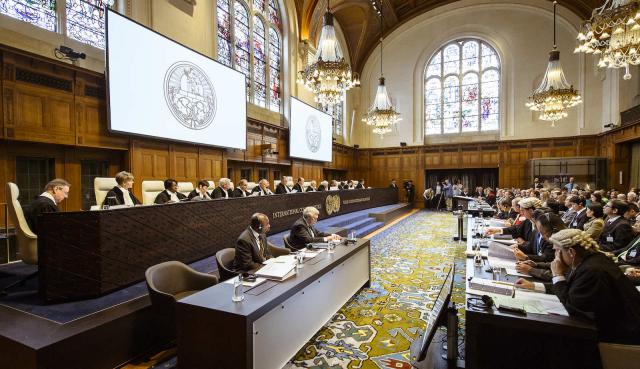The recent decision by the International Court of Justice (ICJ) not to compel Israel to halt its military operations in Gaza, while significant, highlights the complexity and sensitivity of the Israeli-Palestinian conflict. The court's directive, which includes measures to prevent violations of the Genocide Convention and a call for the release of hostages taken by Hamas, underscores the tension between accusations of human rights violations and the recognition of Israel's right to self-defense.
This nuanced ruling from the world's highest judicial body reflects the intricate balance of legal, moral, and political considerations in a conflict marked by prolonged suffering and deep-seated animosities. While the ICJ's decision does not satisfy the full demands of South Africa and its allies, who allege Israeli genocide against Palestinians, it does place responsibility on Israel to abide by international treaties and conventions.
Netanyahu Response To ICJ Ruling: Israel will continue to defend itself against Hamas, a genocidal terrorist organization. pic.twitter.com/2fkulpI6Rh
— Nelson Epega (@nelsonepega) January 26, 2024
Israeli Prime Minister Benjamin Netanyahu's assertion of Israel's inherent right to defend itself against Hamas's attacks, juxtaposed with the Palestinian Authority's condemnation of the military campaign, encapsulates the polarized views on the conflict. The contrasting perspectives are further evidenced by the varied reactions within Israel, ranging from relief over the court's restraint to concerns about the potential impact on Israel's global standing.
The ICJ's focus on avoiding civilian harm and facilitating humanitarian aid in Gaza aligns with international calls for mitigating the conflict's human toll. This approach is distinct from the court's handling of other international disputes, such as its directive to Russia regarding Ukraine, highlighting the unique context of each conflict.
Thank you Ugandan judge Julia Sebutinde who voted against ALL the provisional measures South Africa sought against Israel.
— dr Đuro Trkulja (@DrTrkulja) January 26, 2024
She is the first African woman to sit on the ICJ 🙏 pic.twitter.com/p6bqV10vE4
The diverse composition of the judges voting for the order, representing countries with varied allegiances, indicates a broad, albeit not unanimous, international perspective on the conflict. The inclusion of judges from countries traditionally supportive of Israel, alongside those aligned with the Palestinian cause, underscores the global concern for the humanitarian situation in Gaza while acknowledging Israel's security concerns.
As the international community continues to grapple with the multifaceted challenges of the Israeli-Palestinian conflict, the ICJ's ruling serves as a reminder of the ongoing need for a balanced, thoughtful approach that respects both legal obligations and the realities on the ground.


